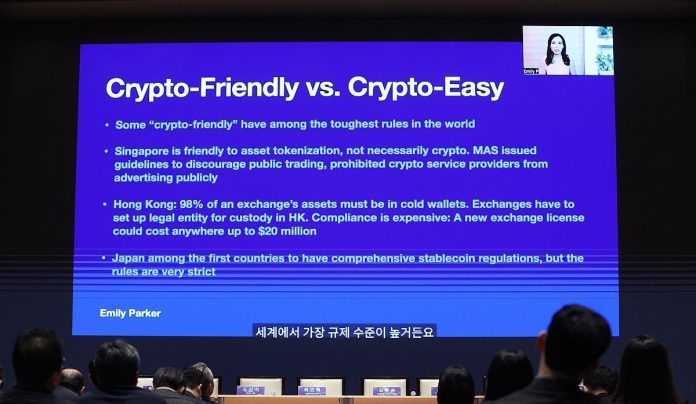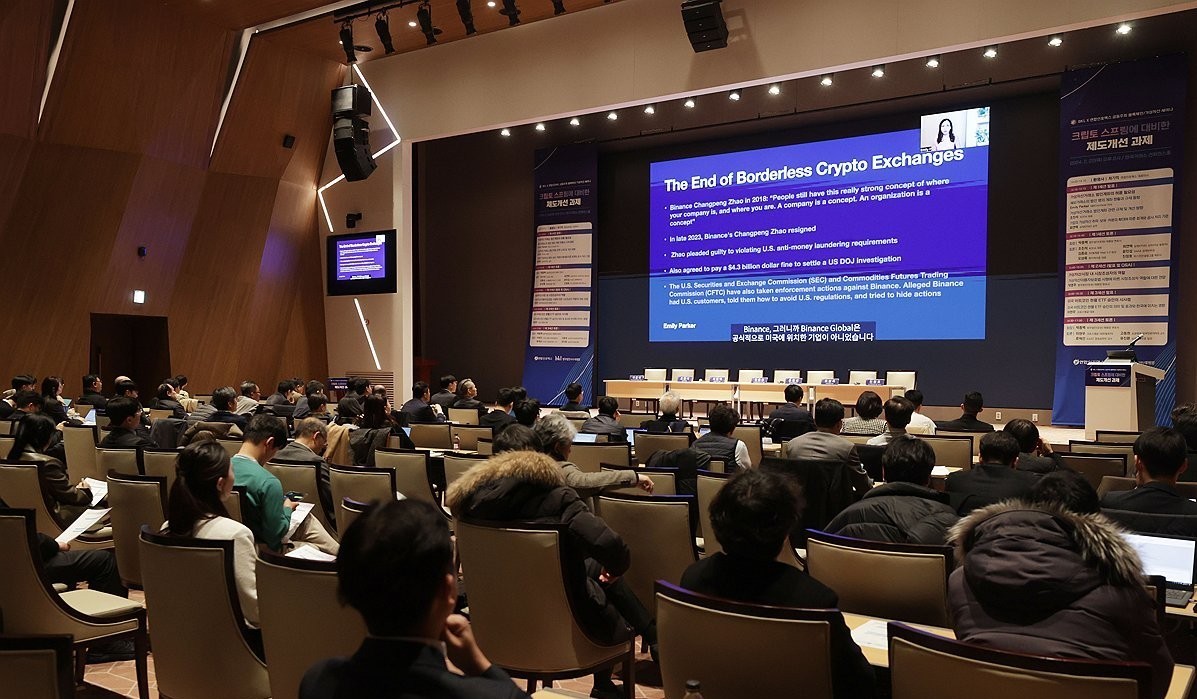
The gradual restriction and eventual complete prohibition of cryptocurrency investment and account setup by corporations in Korea have been criticized for undermining the regulatory goal of investor protection through ‘shadow regulation’. Especially with the upcoming enforcement of the Cryptocurrency User Protection Law in July, there is a rising concern that the role of Market Makers (MM) will disappear, highlighting the need for allowing corporate accounts.
Cho Jin-seok, CEO of Korea Digital Asset (KODA), mentioned that “The Act on Reporting and Using Specified Financial Transaction Information (Act on Reporting and Use of Specific Financial Transaction Information, etc) does not contain provisions limiting the issuance of real-name accounts to corporations”. Despite the foundation for banks and exchanges to open corporate accounts through agreements, they face difficulties due to unseen regulations.
The limited participation of corporations can miss the potential to suppress fraud and stabilize the volatile domestic cryptocurrency market, which can be easily targeted by pumping schemes based on minor rumors. Moreover, companies pursuing NFT businesses and other digital asset ventures are pushed into an underground Over-The-Counter (OTC) market due to the inability to open corporate accounts, facing monetization issues.
Yoon Min-seop, Policy Head of the Digital Asset Exchange Alliance (DAXA), highlighted that the impossibility of corporate trading is negatively impacting the ecosystem, along with the burden of Anti-Money Laundering (AML) compliance costs and the lack of market vitality. He suggested the necessity of establishing a separate corporate trading process, where banks, exchanges, and custodians collaborate to mitigate money laundering risks.

There is also a viewpoint that the permission for corporate investment in digital assets should be approached from various perspectives. Distinguishing between institutional investors and general corporations, and creating opportunities for institutional investors to participate as MMs are among the suggestions. With the institutionalization of digital assets starting abroad, there is a pressing need to re-evaluate domestic regulations and respect innovation to enhance global competitiveness.




![[November]Uptober No More](https://coinhubkorea.com/wp-content/uploads/2025/10/Whisk_d78880efb01a730907f4be201effefe1dr-1-100x70.jpeg)

